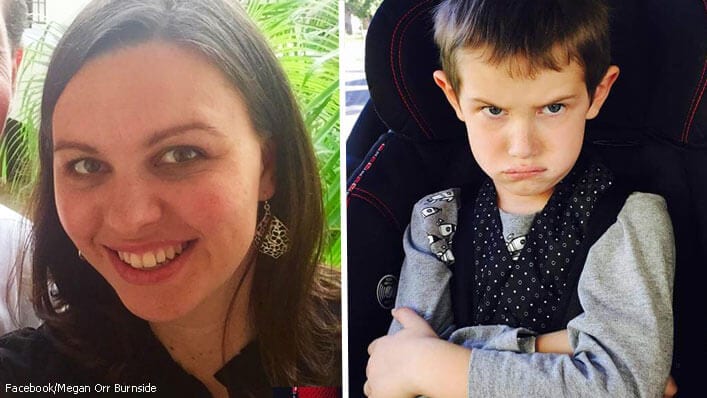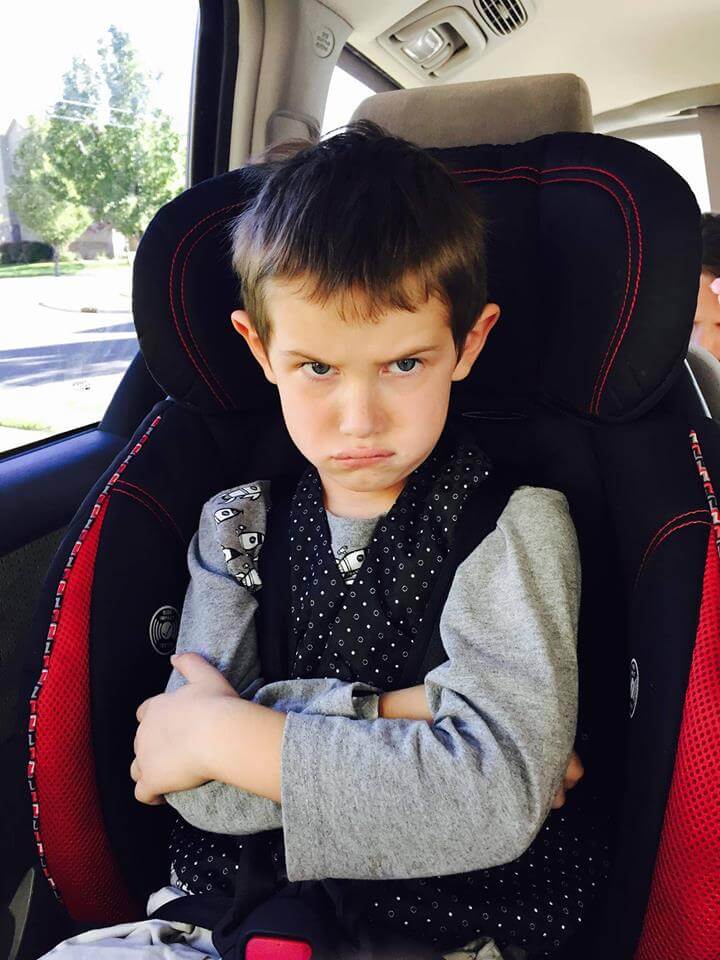Read Megan’s powerful story in her viral Facebook post that has since been shared over 20,000 times on her personal page and Love What Matters:
“I have something weighing on my heart this morning.
A few years ago I was in Tennessee with my husband at a training event. We were at a gas station when we saw a woman with a boy of about 10 years old, struggling to get him in the car. He was screaming and she was so angry and frustrated. We watched her get him in the car and there was a lot of physical fighting in the car. It looked like she was hitting him as well, so we called the police. They came and we left. We then got a call and they told us that the boy was autistic and she really struggled with him, and she had even asked for the police’s help in the past to deal with him because he was very violent. They said they have been helping her and she’s doing the best she can.
I had the most overwhelming realization of my mistake. In my eagerness to protect the child, I neglected to offer help to the mother. Instead I “turned her in” to the authorities. We sat and watched her struggle and called her in. I have felt guilt even years later that I didn’t get out of my car and offer her some help. If I had helped in that moment, it may not have led to more violence.
Fast forward to a few weeks ago, I was at a thrift store and a woman with two kids were in line to pay. One toddler boy was fussing and the other boy was asking his mother to buy things. She was so angry and explosive at both of them, the whole store was aware of them. People stood there and watched them struggle in the line. I remembered the experience I had in Tennessee and walked over to talk to the little boy and put my hand on his foot. He calmed down. The mother was so frazzled and apologized. She told me she worked nights and she couldn’t even think in the day. I know there were other things going on, but in that moment I told her I understood what it’s like to be overwhelmed. I told her she was a good mom. I told her everything was going to be okay. She cried, guys. She CRIED as everyone else watched her struggle with her burden. Years earlier I would have been holding my cell phone ready, watching to see if she did anything that I should report.
I know there’s a place for the authorities to step in, but I feel like we have become a culture who watches for faults instead of opportunities to help. We have become more separated and condemning, instead of compassionate and loving and serving. If we helped more, we would have to call the authorities less.
This has come up for me today because someone called DCFS on my dear friend. I have spent many hours in her home and she is the kind of mother I want to be like. I have observed the love and patience with which she helps her children do their chores and the way she listens to them tell their stories. I seriously aspire to be like her. When authorities were called by someone no doubt thinking they were “helping,” she was very sick in bed with a respiratory infection. I don’t know what this person observed that they thought was a problem. Maybe her kids were running around without parental supervision? Maybe a parent wasn’t feeding them so they were foraging for themselves? I am sad that the person who called her in didn’t ask how they could HELP HER.
It’s time to stop judging each other and start helping each other, or we will only perpetuate isolation, depression, addictions, violence, and suicide. When people are overwhelmed they need help, not condemnation. I know I have been guilty for doing this very thing and I see clearly how I probably perpetuated the problem instead of helping to uplift and assist others.
I am grateful for reminders (even painful reminders) that we are not that separate. We are not that different. True change comes when we are given love and help, not condemnation.”
Megan’s humble teaching moment at that Tennessee gas station was a painful memory to relive, but she couldn’t be more grateful for the blessing of parenting perspective it gave her to share with the world.
The next time we think about slamming down the Judge-Judy gavel on a parent who appears to be in the wrong, I pray we take a moment to first offer a helping hand…because maybe—just maybe—that ‘horrible mother’ is simply a struggling mommy doing the best she can to raise her baby in a broken world, just like you.


